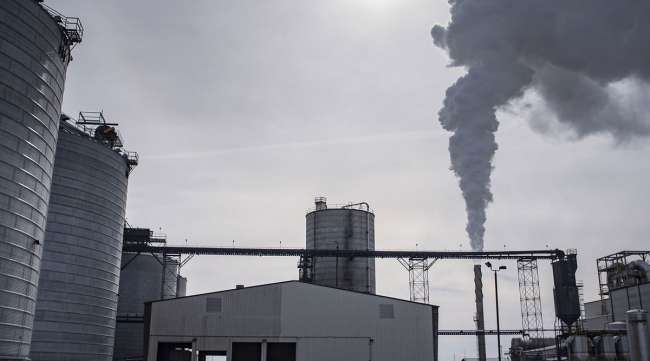EPA Readies Biofuel Waivers, Delays for Trump’s Final Days

[Ensure you have all the info you need in these unprecedented times. Subscribe now.]
The Trump administration is expected to exempt some oil refineries from 2019 mandates to use renewable fuel as it readies possible last-minute moves on U.S. biofuel policy.
Environmental Protection Agency officials also are considering formally extending deadlines for oil refineries to prove they have complied with renewable fuel quotas for 2019 and 2020, as legal uncertainty surrounds the biofuel program. The policy announcements being contemplated by the administration were described by multiple people familiar with the matter who asked not to be named before a formal announcement.
The flurry of activity during President Donald Trump’s final days in office comes after the Supreme Court agreed to hear a case testing the ability of refineries to win exemptions from annual biofuel-blending quotas. Confusion has surrounded the matter since the 10th Circuit Court of Appeals ruled in January 2020 that the EPA wrongly granted some of those exemptions and that refineries are only eligible for waivers if they have continually received them.
RELATED: Governors Ask Trump to Waive Biofuel Quotas Amid Pandemic
Biofuel policy divides Trump’s political base — often pitting refiners in Texas and Pennsylvania against ethanol producers in the Corn Belt. The administration has changed course on numerous planned biofuel policy moves during Trump’s four years in the White House, after complaints from powerful ethanol and oil interests.
Holding Off
The legal uncertainty led the EPA to announce in March last year it was extending the deadline for small refineries to comply with the 2019 quotas. Compliance is usually required each March for the previous year. The agency also has held off deciding on 32 pending applications from small refineries for waivers from the 2019 quotas, while the 10th Circuit ruling was appealed to the Supreme Court.
Approvals for most of those pending 2019 small-refinery exemptions are set to be announced Jan. 14, said people familiar with the matter. The waivers would not be granted to refineries directly affected by last year’s 10th Circuit ruling, said the people.

How can we control an unruly trucking tech stack and streamline fleet management practices? Host Seth Clevenger speaks with Ray Greer, CEO of Omnitracs, which acquired SmartDrive last year. Hear a snippet, above, and get the full program by going to RoadSigns.TTNews.com.
Exemptions could benefit independent refiners such as PBF Energy Inc., CVR Energy Inc., HollyFrontier Corp. and Delek U.S. Energy Inc., Height Capital Markets said in a research note for clients. And ClearView Energy Partners said approved exemptions would likely drive a further decline in the price of renewable identification numbers, the compliance credits refiners use to prove they have fulfilled annual biofuel-blending quotas.
EPA officials had downplayed the possibility of exemptions, telling some stakeholders not to expect waiver approvals soon, according to two people familiar with the conversations. And before the Supreme Court agreed to hear the biofuel exemption case, EPA Administrator Andrew Wheeler told the American Fuel and Petrochemical Manufacturers trade group that the agency was waiting on “the ultimate results” of the appeal before it decided on 2019 waiver requests.
Working Furiously
Biofuel advocates were working furiously to head off the move, including with direct appeals to Trump. Nearly two dozen lawmakers urged the Trump administration in a letter Jan. 12 not to grant the exemptions, warning that waivers would “further devastate America’s rural communities” and be “inappropriate” given the ongoing litigation.
Under the potential delayed Renewable Fuel Standard compliance deadlines, refineries could have until Jan. 31, 2022, to comply with the 2019 quotas and until June 1, 2022, to prove they have fulfilled the 2020 targets.
RELATED: CARB Approves Amendments to Reduce NOx Emissions in B20 Biofuels
EPA officials also have weighed formally soliciting comment on new designs for the warning labels used on pumps that dispense a higher-ethanol fuel known as E15. The move has been encouraged by ethanol producers who say the current 3.5-by-3-inch warning sticker unfairly scares off motorists from buying their product.
Biofuel policy may be no less complicated for President-elect Joe Biden, who praised next-generation biofuels on the campaign trail and criticized the surge in exemptions issued by the Trump administration. Current law outlines annual RFS targets through 2022, giving the EPA more discretion to set quotas after that.
Jennifer A. Dlouhy, Jennifer Jacobs and Kim Chipman were the primary contributors to this report.
Want more news? Listen to today's daily briefing:
Subscribe: Apple Podcasts | Spotify | Amazon Alexa | Google Assistant | More




